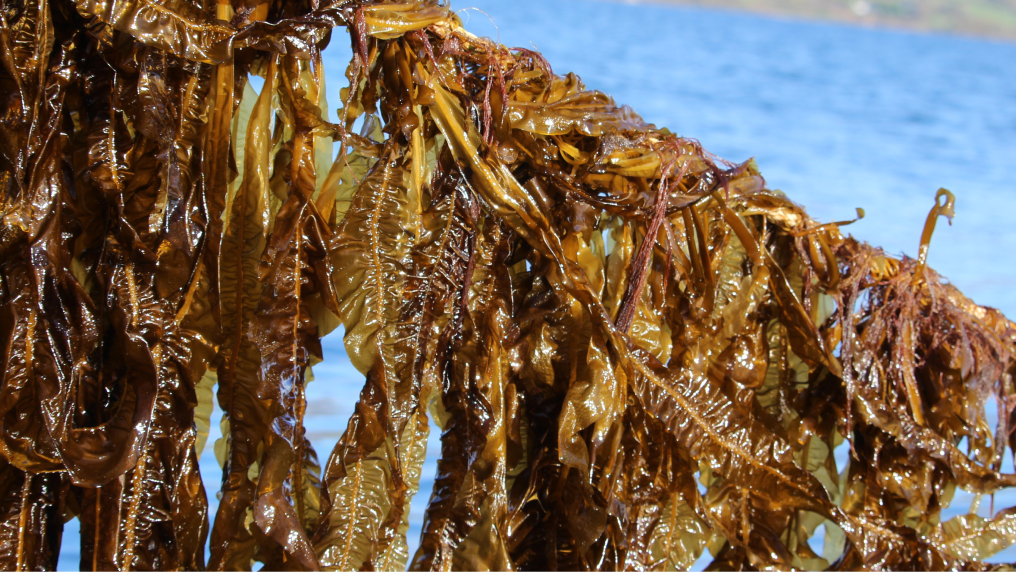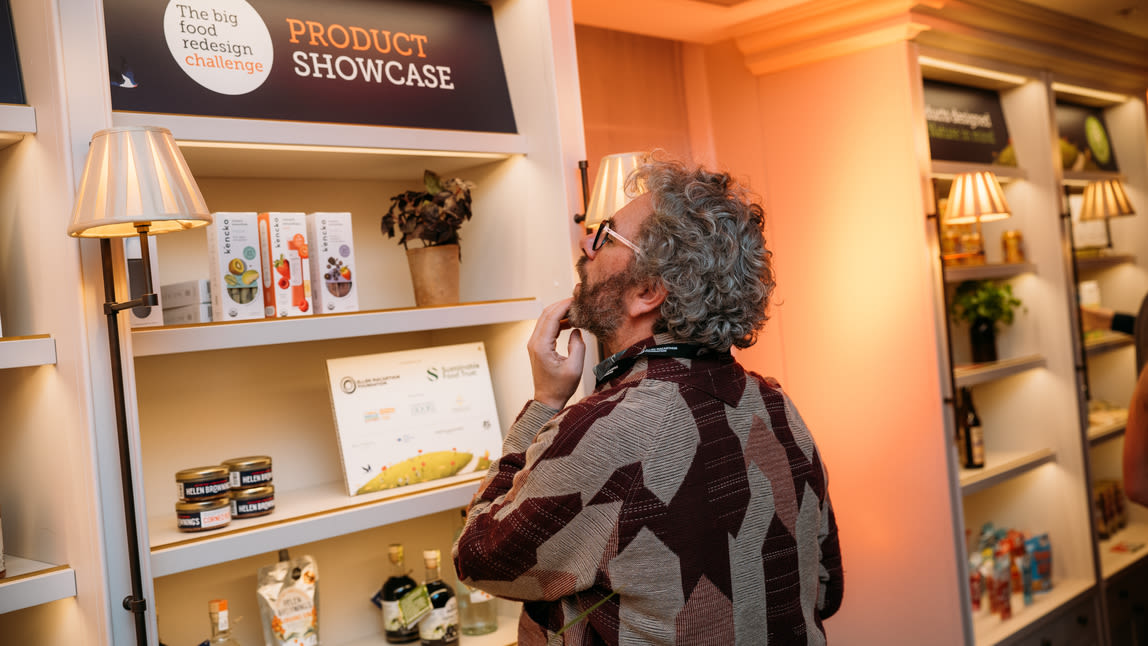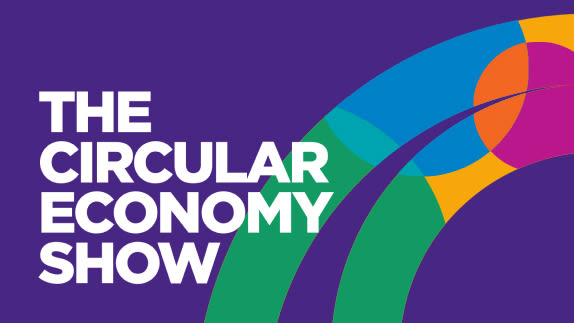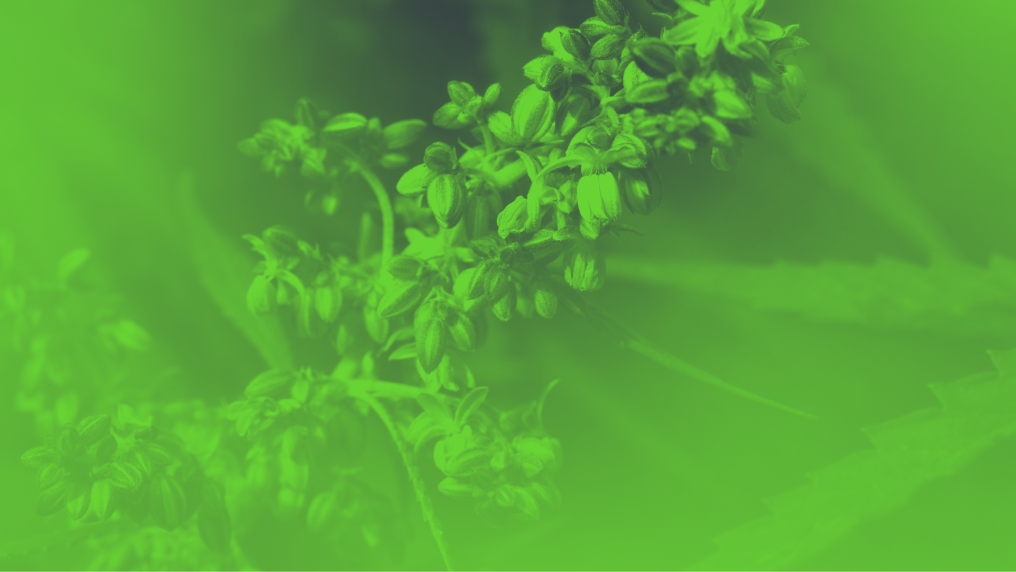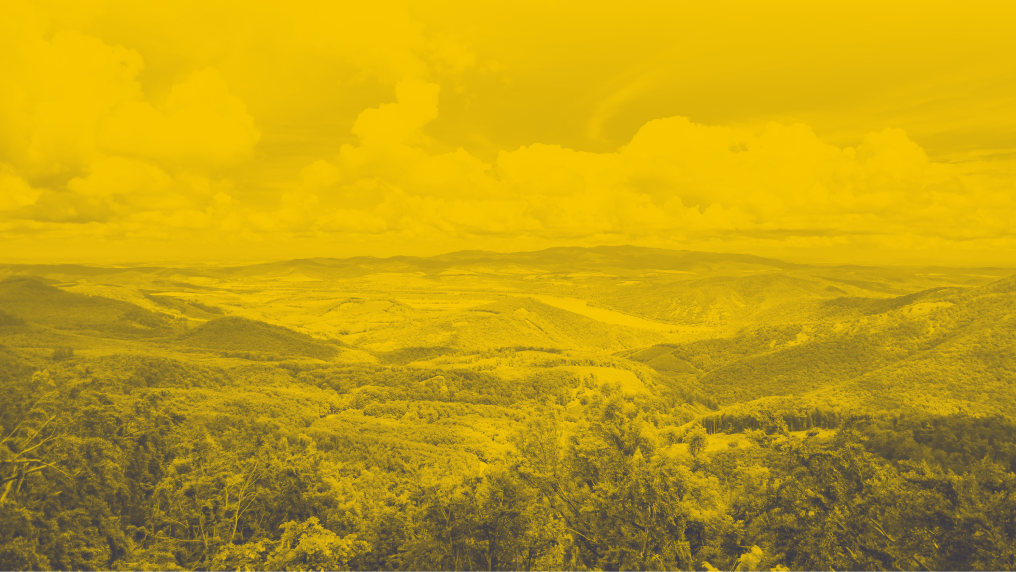The Ellen MacArthur Foundation’s Big Food Redesign Challenge set out to demonstrate how redesigning products in line with circular economy principles, can create a food system that allows nature to thrive.
In this episode, hear from one of those redesigners, Chloe Stewart from Nibs etc, alongside Katie Carson, Director of Corporate Affairs for Food and Climate Policy at Tetra Pak, to learn more about:
The role of upcycled ingredients in designing brand new food products
The challenges startups and SMEs face in the food industry
The importance of collaboration across the food industry to implement circular design for food principles
What enablers and resources are needed to scale food that keeps nature in mind
How larger organisations can support small start-ups and SMEs to foster innovation
Find out more about the Big Food Redesign Challenge.
If you enjoyed this episode, please leave us a review or a comment on Spotify or YouTube. Your support helps us to spread the word about the circular economy.
Listen on Spotify, Apple Podcasts, or wherever you get your podcast.
Transcript
Transcript
[13:20:19.840] - Lou Waldegrave
How are organizations from small startups to large corporations working together to take on some of our biggest global challenges, like the food system? The Ellen McArthur Foundation's Big Food Redesign Challenge set out to demonstrate how redesigning products in line with circular economy principles can create a food system that allows nature to thrive. In this episode, I'll be talking to one of those redesigners, Chloe Stewart from NIBS Etc. We'll also be hearing from Katie Carson, Director of Corporate affairs for Food and Climate Policy at Tetrapak, about the importance of supporting small startups and SMEs to foster that innovation. Chloe, thank you so much for joining me today. It's great to have you in the studio.
[13:21:13.030] - Chloe Stewart
Thank you so much for having me.
[13:21:14.890] - Lou Waldegrave
Now, before we get into the really juicy stuff, simply for the clarity of people at home who may be listening and not know, what do we mean by upcycled ingredients?
[13:21:27.320] - Chloe Stewart
It's a great question and I guess I want to start with maybe talking about the difference between recycling and upcycling. So recycling, you would take a material, a plastic or a metal, for example, and you'd break it down to its original components and then you turn it into something similar to what it was, or slightly less lower quality than it was. So typically with plastic, you can never make it quite the same quality.
[13:21:51.260] - Lou Waldegrave
Yeah.
[13:21:51.930] - Chloe Stewart
With upcycling, this is how I like to think of it, is you are taking, you're breaking sort of ingredients down or you're taking something that has been considered waste or, you know, a side stream or a byproduct of something else. So it's a secondary item, secondary product or ingredient, and then you would add things to it and then that finished product would then become something more than what it was. So you're lifting it up within the system that it's come from.
[13:22:20.870] - Lou Waldegrave
So effectively you're taking what would have been possibly a waste product and creating a brand new delicious product.
[13:22:28.830] - Chloe Stewart
And in the case of food, that's exactly what we're doing. Yes. So we are looking at side streams from food and drink manufacturing. So for example, when you make an apple juice, what is all the skin and the pulp go and the fiber? So we collect that because normally it gets discarded and not valued. And we add other ingredients such as oats or rye flakes and other nuts and seeds like you can see in our granolas that are in front of us. And then we bake it and turn it into a granola. And the granola is obviously a higher value product than the pulp was on its own. So that's why we call that an upcycled granola genius.
[13:23:01.370] - Lou Waldegrave
Absolutely. Great. So why did you take part in the Big Food Redesign Challenge?
[13:23:08.670] - Chloe Stewart
The Big Food Redesign Challenge was such an amazing opportunity and it came about at a time when the business was. We'd had kind of hit our first few milestones. So Nibs, et cetera, had launched into initial kind of retailers. We'd gained some really good traction and now it was time to scale. We needed some investment, we needed to sort of build our exposure and brand awareness as well. And as a small business, you don't often have the funds and the resources to do a huge campaign. And so all of these things kind of came together and the challenge offered an opportunity to build brand awareness, to support, potentially fund part of our, our NPD and our growth, but also be a part of this really big movement. And I'd followed the Ellen MacArthur foundation for a little while and I loved the sort of initiative and the growth that it had instigated in so many small, medium, big companies, organizations around the world. And so I had already admired kind of the work that the foundation was doing. And I thought what an amazing opportunity to try and be part of that. And if it's around sort of the food system and shining a light on the amount of waste that is happening, I mean, as a brand that has been championed since day dot, so since 2018, you know what we need to do?
[13:24:24.640] - Chloe Stewart
We need to eliminate food waste. That's been our mission since the beginning. I could not be a part of this challenge. And so that's why, yeah, I almost missed the deadline but managed to, managed to get to join.
[13:24:36.340] - Lou Waldegrave
I actually didn't realize that you've been going since 2018.
[13:24:40.690] - Chloe Stewart
Yeah, well, actually the Nibs Etc blog about upcycling leftovers and zero waste recipes, I kind of birthed that into 2015 and then it grew offline into products and events upper and eventually a product range and incorporated that in 2018. So, yeah, I've been banging the drum about upcycling and eliminating food waste for years. But I would say that I guess there was a pre Covid life during Covid life and then the post Covid life and they've all looked quite different.
[13:25:09.050] - Lou Waldegrave
Yeah. The next question was inevitably, what have been your main challenges? So have they evened out a bit since 2018 or has it just been constant?
[13:25:20.590] - Chloe Stewart
Yeah, I mean, I think anyone working for a startup or small company will say that even a big company, the challenges are constant. I think they've looked quite different in different phases. But for the purpose of this chat, let's talk about, I guess some of the challenges during, while we were part of the big food redesign challenge. Yeah. And so during that time we, we looked at refining and improving our current processes for upcycling, but also looking at our next, next products that we were developing, so new product development. So in terms of looking at our existing supply chain, I guess some of the challenges were more surrounded by costs. So we'd ironed out the kind of types of partners that we needed to work with to upcycle the product, the ingredients smoothly and incorporated it into our recipes. But it's quite expensive when you're a small business to kind of invest in these systems and these sort of infrastructure. So the costs have always been sort of quite prohibitive if you're trying to do it at scale. And then on some of the new products that we were developing, we were looking at using other byproducts.
[13:26:23.450] - Chloe Stewart
So we use apple pulp is the hero byproduct here. But we're looking at heroing brewer's spend grain, which is high in protein and fiber, or rape meal, which is the byproduct of making rapeseed oil, also high in protein and fiber. And these again are supply chains that don't exist for these ingredients because they're seen as waste. And so finding new suppliers, building relationships with new suppliers, showcasing why it's a better idea for them to work with us to upcycle this and keep it in the human food supply chain rather than send it to animal feed or waste energy is, is a challenge. And sometimes you find people that are so gung ho they totally believe in what you're doing on a personal level, they understand the bigger picture. But other times, you know, you speak with, sometimes it's often the bigger companies actually that, you know, an operations head of operations is being paid to be really efficient and keep costs down. And as soon as you ask, you know, can we explore doing a process differently? You know, we want to take on a lot of the work, but we need input from you and it's, oh, you know, it's a great idea but you know, we don't have capacity for this at the moment.
[13:27:26.250] - Lou Waldegrave
Now it's interesting you bring up those big companies because recently my colleague Pippa spoke to Katie Carson at Tetra Pak, who are expanding beyond packaging to include technology, process, product development. And they're actually putting in place incubation programs for early stage food startups. This is what Katie told Pippa when she was asked why it's so important to work with small businesses, not just the big ones.
[13:27:58.690] - Katie Carson
The food sector is basically made up of SMEs. You know, over 90% of companies in food manufacturing are SMEs. So I think it's really important to, you know, support those companies, particularly those that are looking to be a bit disruptive so to, you know, look at different ways of producing food and more regenerative ways and, you know, unlocking that potential to change and transform our food system. We're really looking at opening up both our internal networks and expertise as well as our external business to understand, you know, what are the specific needs of those companies to help them sort of to take their product development to the next stage. So that could be. It could be sort of very much taking the production from kitchen scale to larger production scale. It could be about looking at how you can actually develop the processing technologies to integrate regenerative ingredients into food products that could be, you know, fonio or upcycled ingredients. You know, as well as, you know, the many different things that, you know, some of these companies really need to help, you know, them unlock that, those sort of opportunities.
[13:29:17.050] - Lou Waldegrave
Well, there you go. So did you need to engage with anyone outside of your organization? You've already said you did approach people, but. But on the whole, dealing with other supply chains, et cetera, how did you find that journey?
[13:29:29.810] - Chloe Stewart
Yeah, I mean, since the beginning of starting NIBS etc, it's been about collaboration across the industry, from suppliers through to service providers, through to the retailers and the end consumers. So it's really a project about collaboration. But yeah, during the big food redesign challenge, it was a great opportunity to kind of rebuild relationships that we'd explored in the past and start new ones. So, for example, speaking directly with farmers that are milling their own grains, that have byproducts that are coming off of that. I talked about the rape meal earlier, so byproduct of rapeseed oil. So these are all sort of new relationships that we were exploring and required a little bit of coordination between all of us to make sure we could get samples on time. And we definitely. Some of these have short shelf life, some of these ingredients. We hit a few challenges when we were doing lots of lab tests and things and doing lots of recipe development. So. Yeah, but we are constantly looking to work with other people around the industry because we can't solve this issue of food waste on our own. And so it requires a bit of engagement from everyone.
[13:30:38.900] - Lou Waldegrave
Yeah, you literally have started from scratch, haven't you, and just worked your way up and through. Pippa also asked Katie what advice she would give to to any new startup beginning their circular food design journey. Here's what she had to say.
[13:30:56.990] - Katie Carson
You need a good product. I think that you need a product that consumers will want to buy. So there needs to be the taste. It's also all about the price point, but I think it's also about really understanding that ecosystem within which you're operating and understanding who are the partners or the sort of collaborators that you can work with to help unlock some of the barriers that you will inevitably come across in that food design journey.
[13:31:25.810] - Lou Waldegrave
So, Chloe, if you could wave a magic wand, what enablers and resources do you think you would produce to allow people to scale nature, positive food and make it the norm?
[13:31:42.070] - Chloe Stewart
Yeah, it's a really tough question and it'd be interesting to hear. I think different people coming from different parts of the food industry will have different, maybe different answers. But for me, from the experience of building nibs, et cetera, throughout this challenge, and as I kind of look forward in terms of how we grow, I think there are a few things that would be pretty game changing. And the first, I think is deleting the word waste from our vocabulary, from our systems, from just existence. If you look in nature, I remember I was thinking back on our biology class, the word waste never appeared in texts. It was always, you know, even it would be feces that fed into the soil and the transition of energy through organisms. Like it was. You never heard the word waste. And I think there's really a lot we can learn from that. As soon as you delete the word waste, you know, you call it resource, for example, suddenly it's not a food waste bin, it's a food resource bin. And resource, you know, offers opportunity. And if we know where that is, then we can solve for that.
[13:32:40.630] - Chloe Stewart
And opportunity is exciting. Which then leads me to my second thing, which is we need to understand where the resource is available, where the food waste, as we call it now, is available. And if that's not reported on, if that's not, and I understand, you know, sometimes it's shameful, it's embarrassing, it's bad practice. So people don't want to talk about it. And I think we need to just, we need to drop our egos. You know, pride goes out the window. I think it's just, it's the right thing to do, is to share where food resource, food waste is available, whether it's in manufacturing, whether it's at farm, farm levels, whether it's in Consumers or retailers, that needs to be public information. If we don't know where the problem is, then we can't solve it. And this ties back to what you were saying about the importance of small and challenging businesses. We can move fast, we can be agile, we can react really quickly. So if this becomes available, imagine the opportunity to solve for all of these problems that we currently have and the nutrition that we can pack back into our food systems from all these byproducts that are being lost.
[13:33:42.060] - Chloe Stewart
So I, I think those would probably be the two things that I, if I could wave a magic wand, would, I think, open up a whole world of opportunity to solve, to solve this, this food waste crisis.
[13:33:52.590] - Lou Waldegrave
You are so inspirational to listen to. I'm just going to ask an extra question that wasn't actually on our script. Do you get a lot of Chloe's from 2018 coming to you now for inspiration and support and advice?
[13:34:09.380] - Chloe Stewart
Gosh, that's, you know, from 2018. That's a funny way to think about it.
[13:34:15.540] - Lou Waldegrave
Sorry, off the top of my head.
[13:34:16.720] - Chloe Stewart
No, no, I like that. I was like, do I? Yes, there are. So I'm part of this. I work in this co working space for food and drink businesses and it's quite fun because there are loads of people at different stages, like really, really early stage to, you know, big corporates that use it for NPD and all sorts of things, new product development. And so I guess I find myself somewhere in the middle, which naturally means that I have been through the early, early stages. And I think for the first time in my life, I feel like I understand where I've come from and what I've gone through and I can actually answer questions when people say, you know, how did you deal with, with this challenge? Or how did you pitch this retailer? Or how did you put your first funding, fundraising deck together? And, and yes, also around, you know, sustainable supply chains, like how do you. Where do you begin? You know, how do you approach this? And, and it's quite nice to feel useful and also reflect on what I've learned. So, yes, I guess there are a few Chloe's from 2018 coming through.
[13:35:14.180] - Lou Waldegrave
I think that's brilliant and you should be very proud of what you guys have achieved. And I just want to say thank you so much for joining us here today. It's been an absolute pleasure.
[13:35:23.950] - Chloe Stewart
Oh, it's been an honor to be here. Thank you for having me.
[13:35:26.340] - Lou Waldegrave
Thank you so much to Chloe, Katie and, of course, Pippa. If you enjoyed this episode of the Circular Economy show, please share with your colleagues and friends. And don't forget to follow us wherever you listen to your podcasts. We'll see you next time.
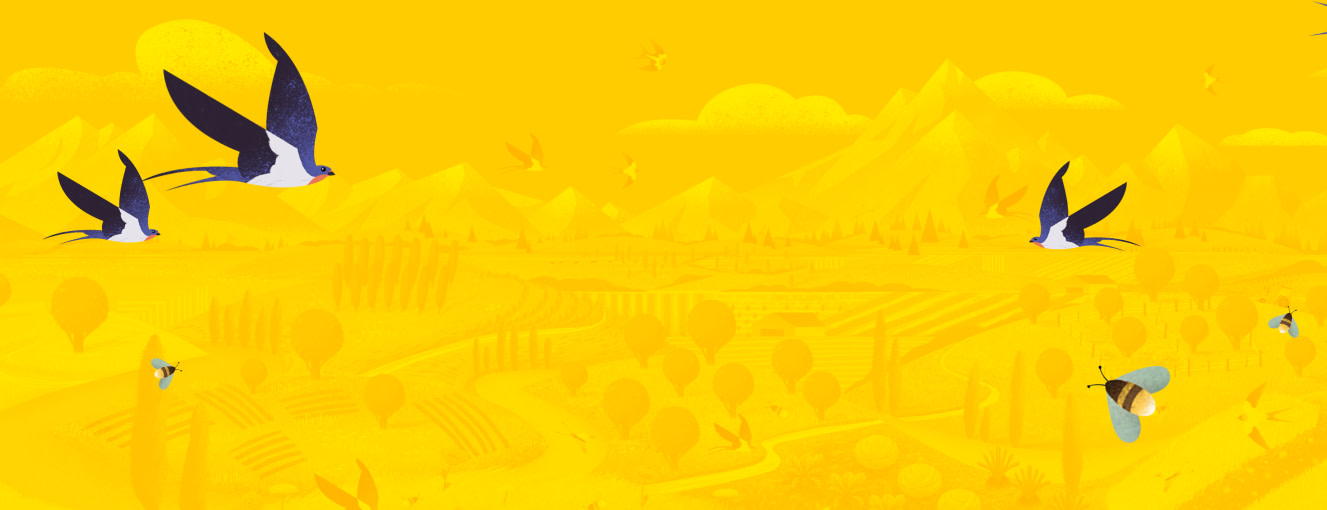
Want to stay up to date?
Subscribe to our newsletter to receive news from across the Ellen MacArthur Foundation, including the latest updates on our work in food.

